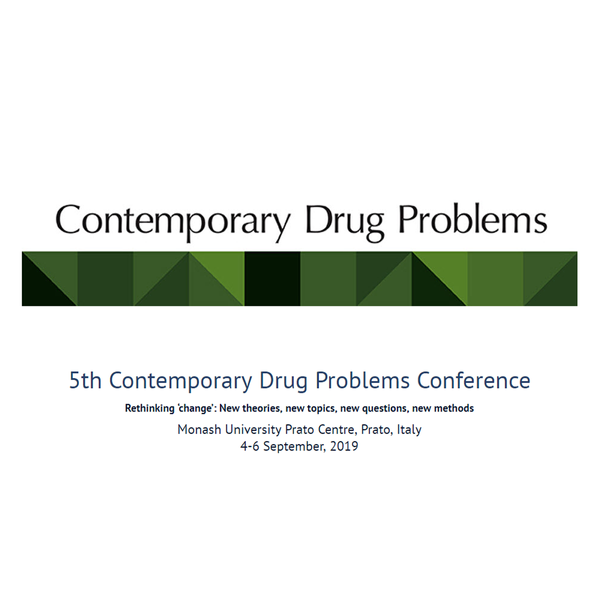CC Drug Pixabay
5ème Conférence sur les problèmes contemporains relatifs aux drogues
La conférence de cette année mettra la priorité sur les présentations qui repensent la notion de « changement » et l’attention particulière qu’il convient de porter à cette notion. Pour en savoir plus, en Anglais, veuillez lire les informations ci-dessous.
The question of what needs to change and why has been of increasing interest to social scientists in recent years. With climate change widely regarded as the most pressing social issue of our time, yet positive substantive change seemingly permanently deferred, and with government change in the US marked not only by a new party and president but by the apparent abandonment of all conventions of government, change is now perhaps our most dominant political concern or preoccupation.
Drugs are, of course, intensively linked to change, whether to understandings of their capacity to change consciousness, or to their capacity to change lifestyle and health (usually understood as ‘harm’). Injunctions to change are also a common theme in drug research and policy. These injunctions are most often directed towards people who consume drugs, in that they are regularly expected to embrace harm reduction, submit themselves to treatment, reduce their consumption, re-make themselves in recovery, assimilate findings from neuroscience or adapt to punitive social welfare measures. While, in recent years, moves have been made to change the social and legal conditions under which drugs are consumed (e.g. via decriminalisation in Portugal and Canada), consumers remain a major focus of injunctions to change.
Recent social science approaches to drugs and their effects have begun to problematise discourses of change, decentring the individual subject and offering a range of alternative conceptualisations of agency, subjectivity, bodies, risk, affects, technologies, infrastructures and knowledges. How might these nascent alternatives help us re-imagine or re-focus the notion of ‘change’ in relation to drugs? How might they encourage change in research questions, theoretical tools, methods, metrics, stakeholder engagement and modes of interpretation? What changes might be necessary in the assumptions informing policy and other forms of social and political action? How might diagnostic instruments, treatment systems, legal processes, health promotion and popular culture be changed to benefit people who consume drugs?
Building on CDP’s previous conferences, which have opened up questions of how drugs are problematised; how the complexity of drug use can be attended to; how drug use might be understood as event, assemblage or phenomenon; and how drugs and their effects are constituted in various forms of practice, the 2019 conference seeks submissions for presentations that re-imagine the notion and focus of ‘change’.
We welcome research from those working in anthropology, cultural studies, epidemiology, history, public policy, gender studies, sociology and related disciplines, and encourage the innovative use of methods, concepts and theoretical tools. Possible topics include (but are not limited to) considerations of change in relation to:
- Alcohol and other drug policy
- Risk
- Prohibition and international drug conventions
- Mandated treatment
- Drug courts
- Education/health promotion in schools and universities
- Harm reduction services and measures
- Neuroscientific approaches to drug effects and addiction
- Monitoring/surveillance systems
- Research on drug trends
- Quantitative measures of alcohol and other drug use and harms
- Qualitative concepts of subjectivity, agency, affect and identity
- Consumer accounts and narratives of drug use, addiction and recovery
- Medical and other forms of diagnosis/assessment
- Treatment models and practices
- Youth and other drug services
- Social media websites and apps
- Popular culture enactments of drug use
Other relevant topics are also welcome.
